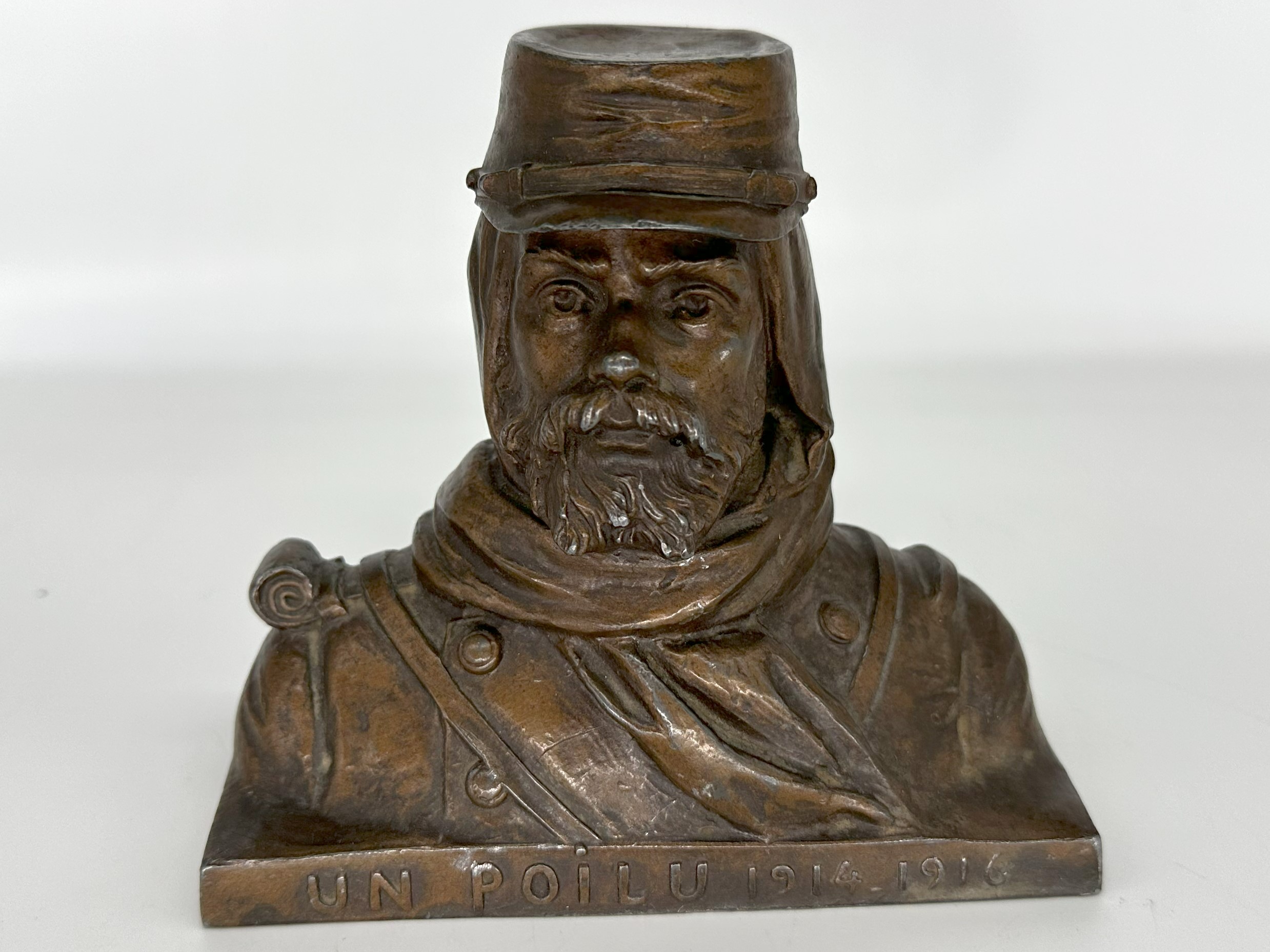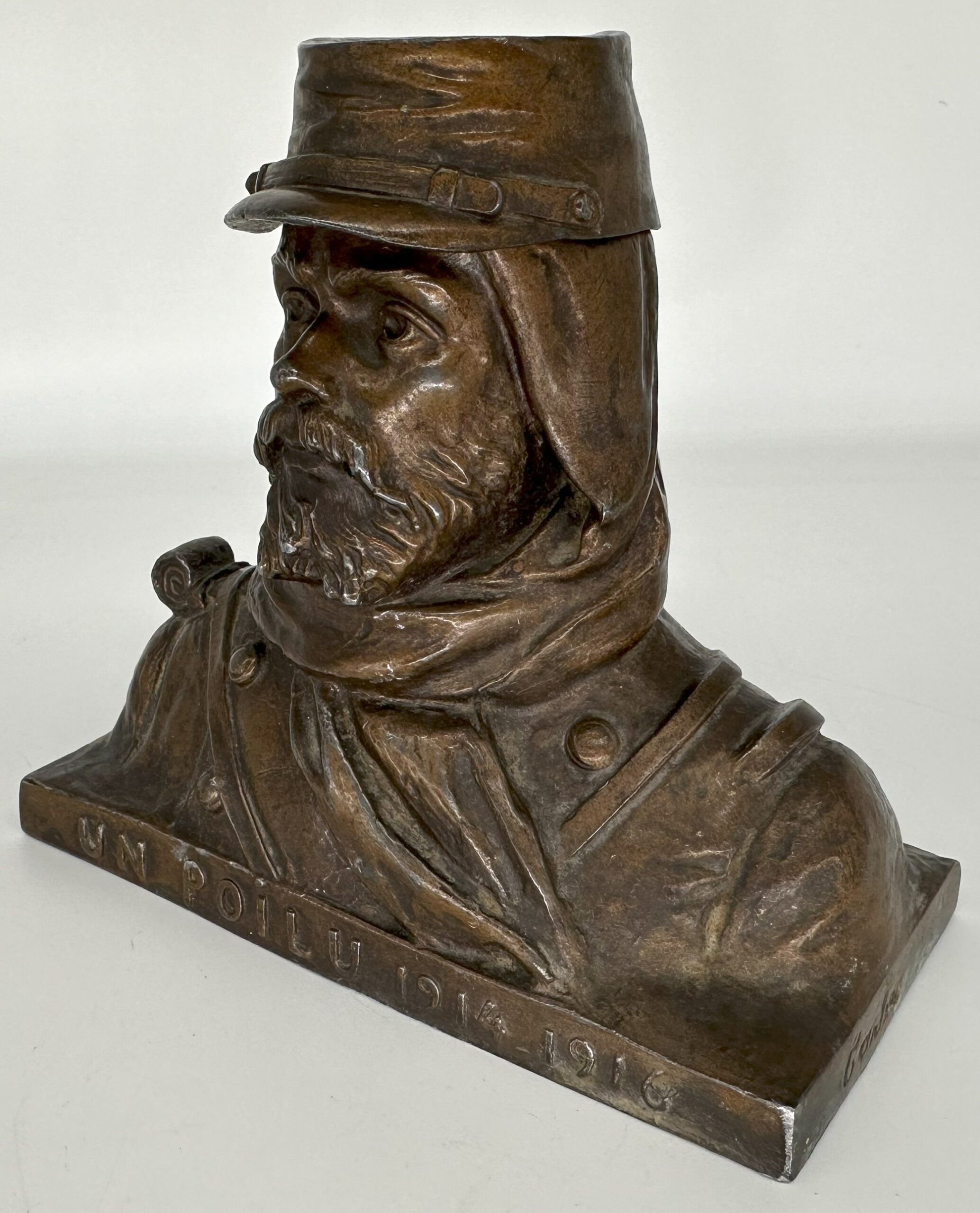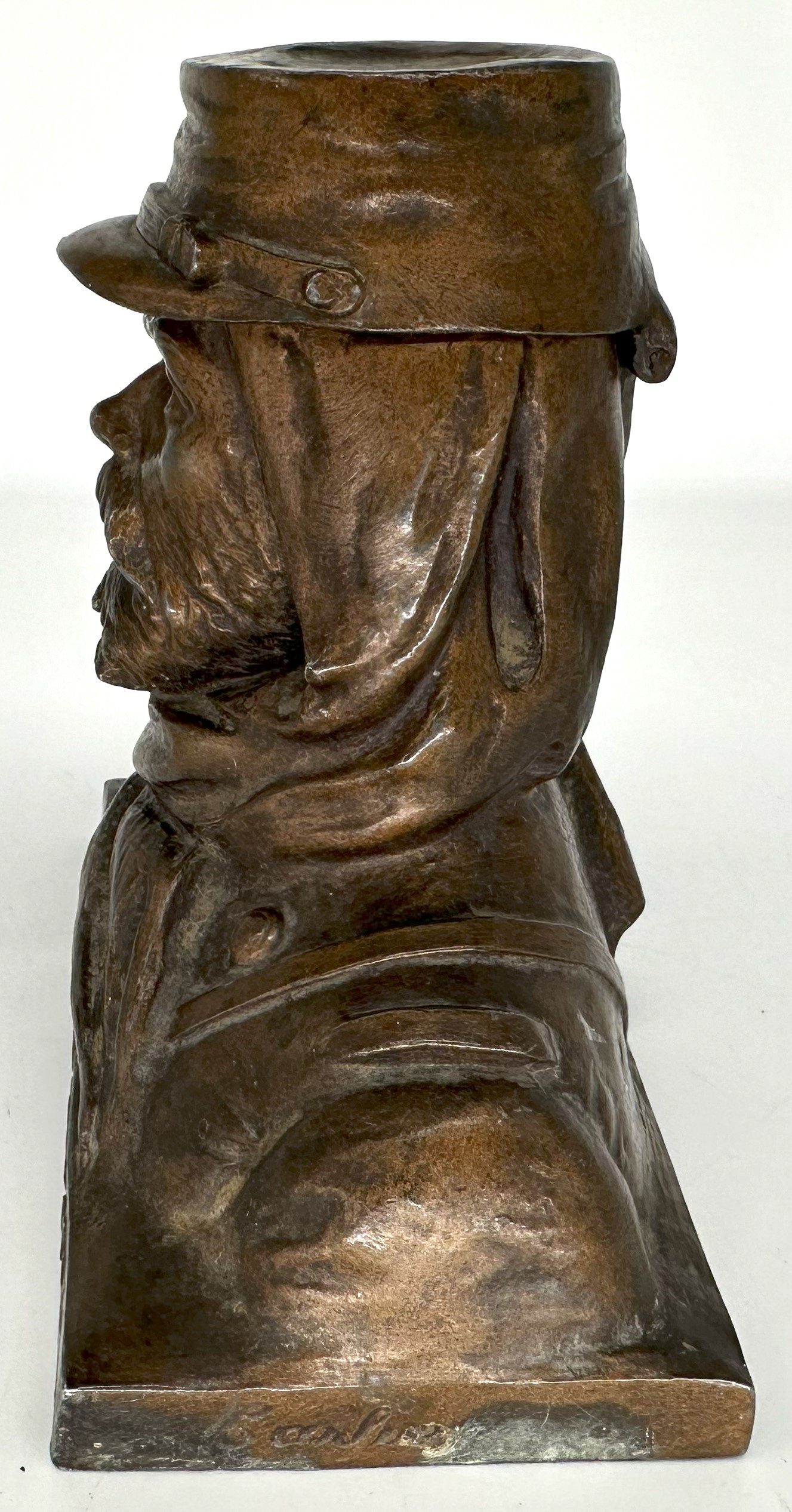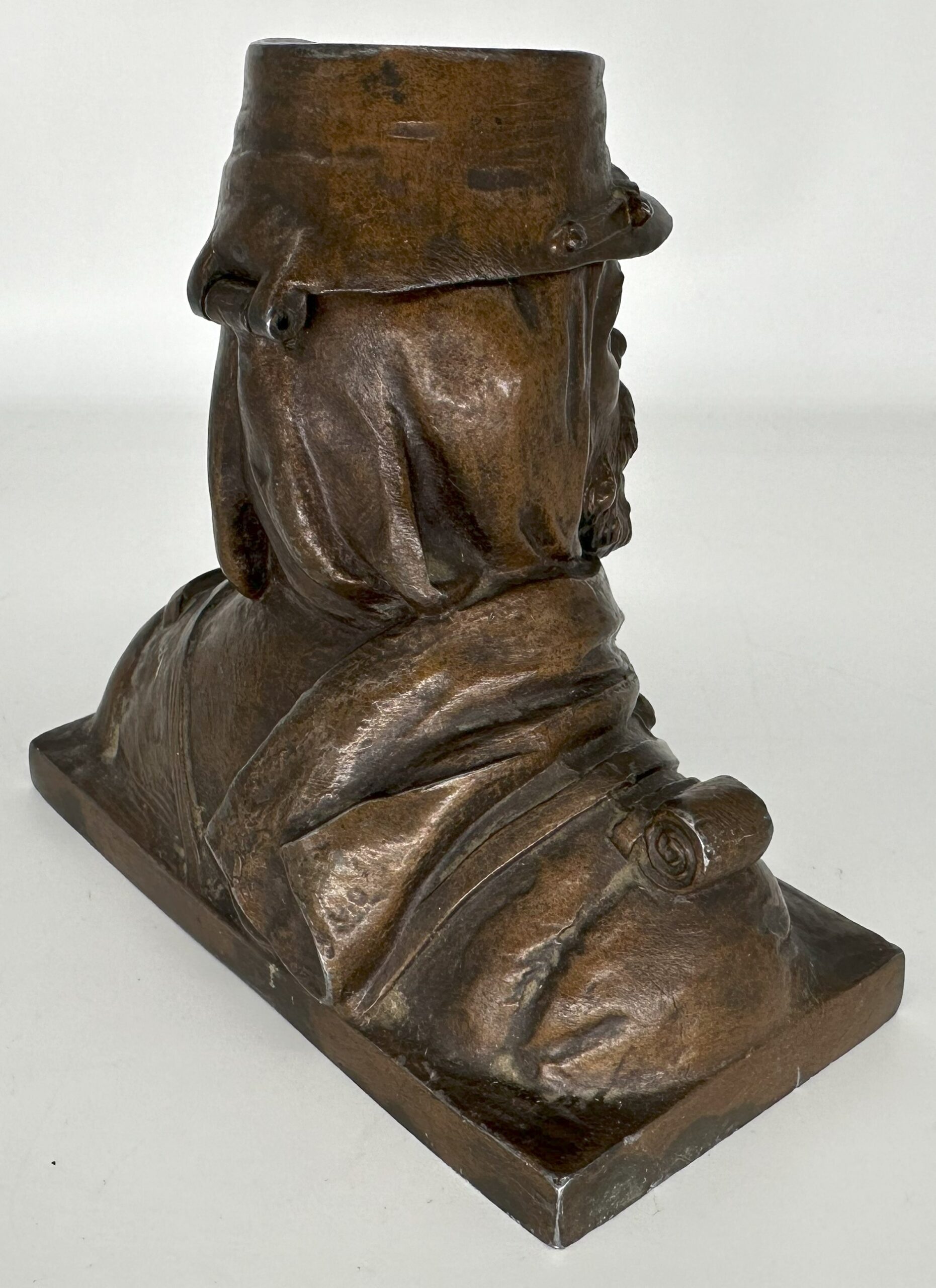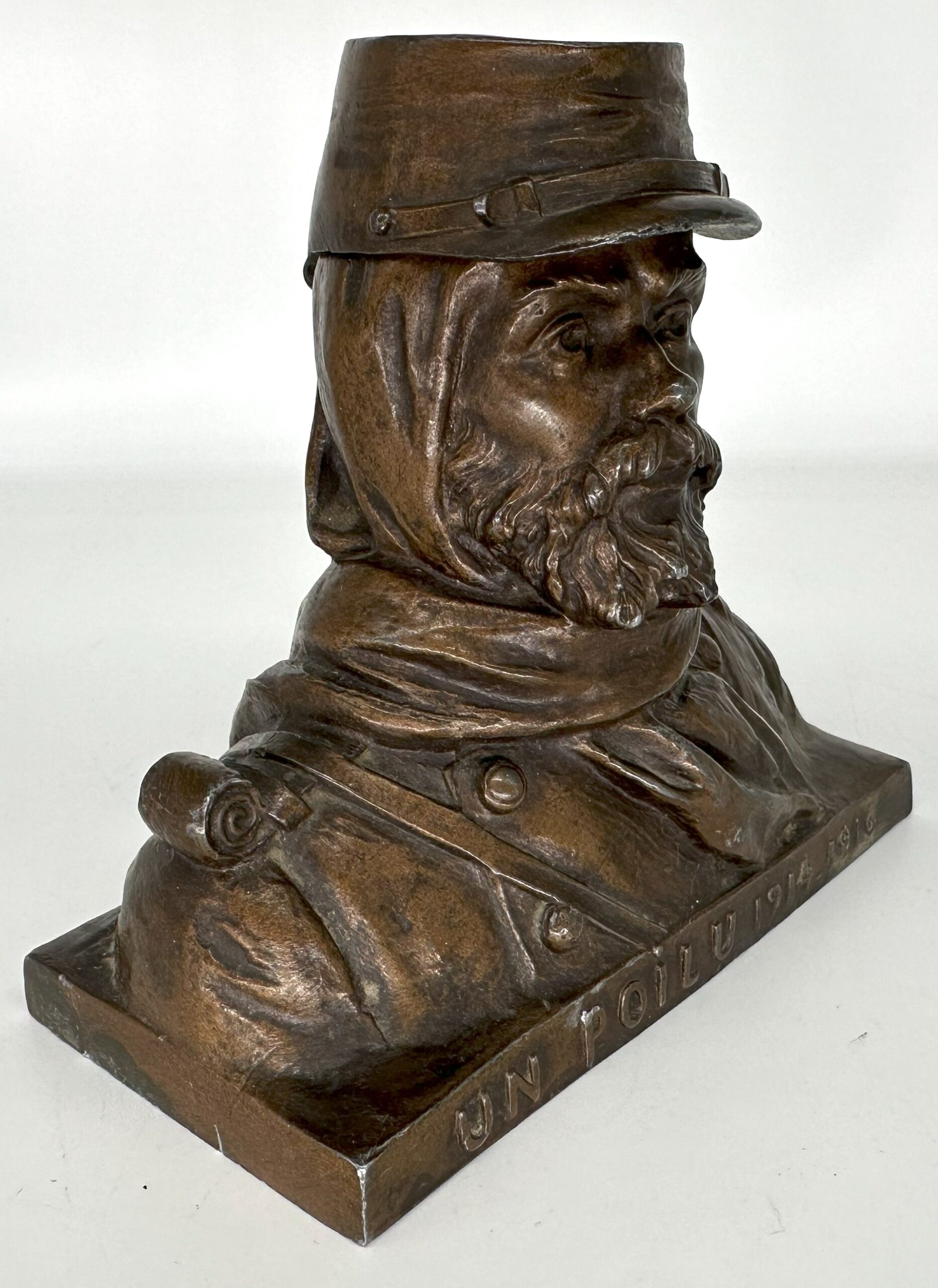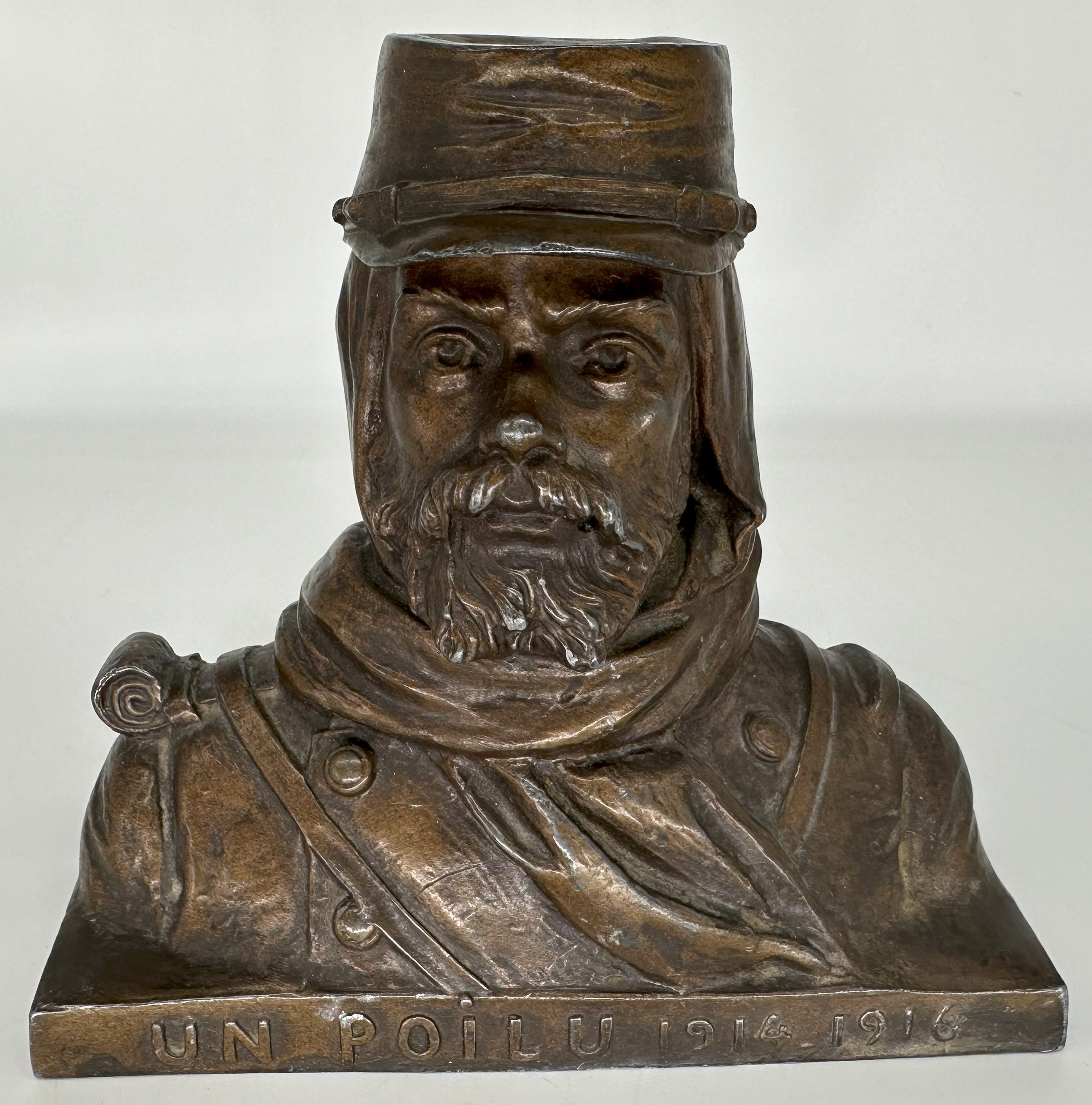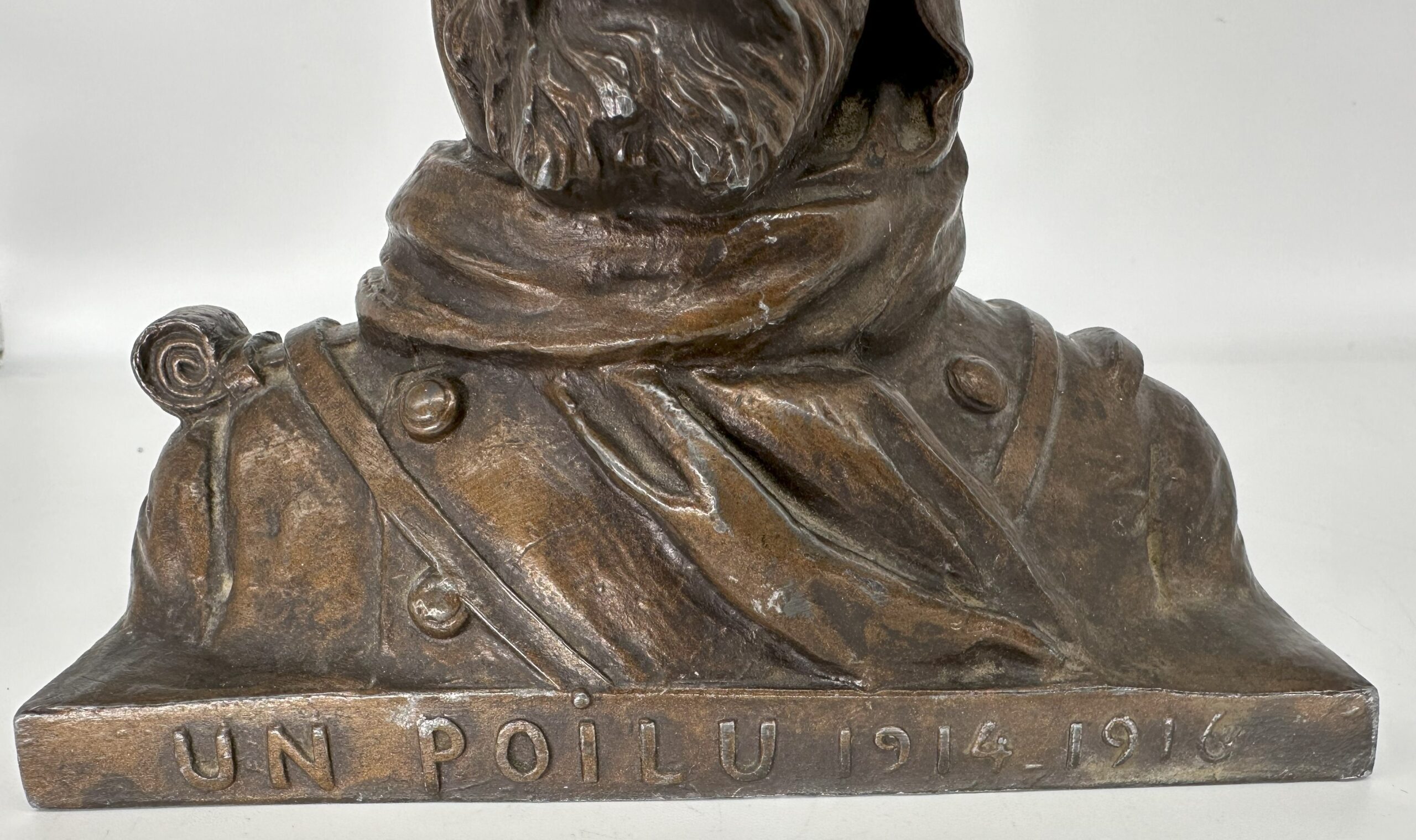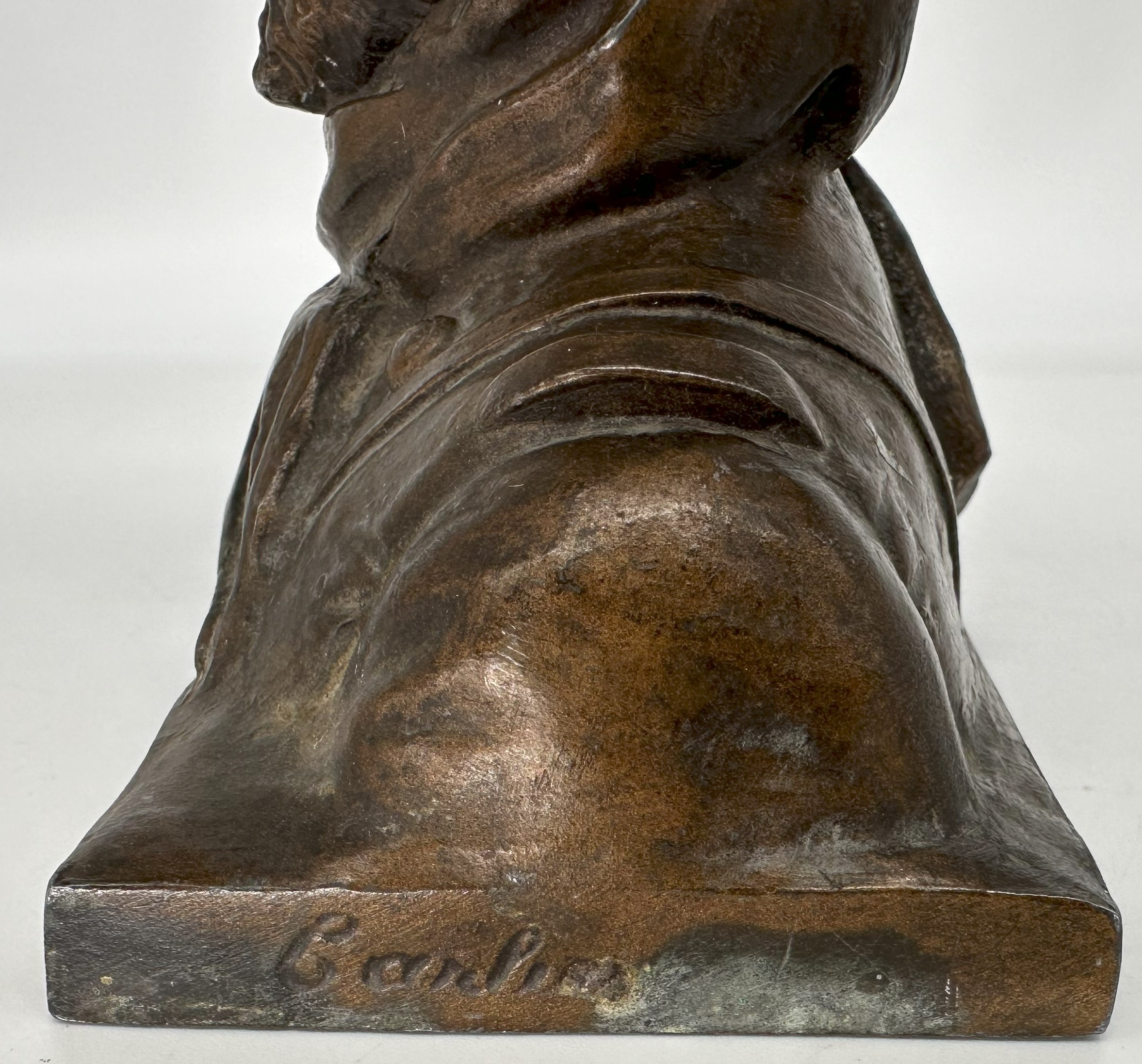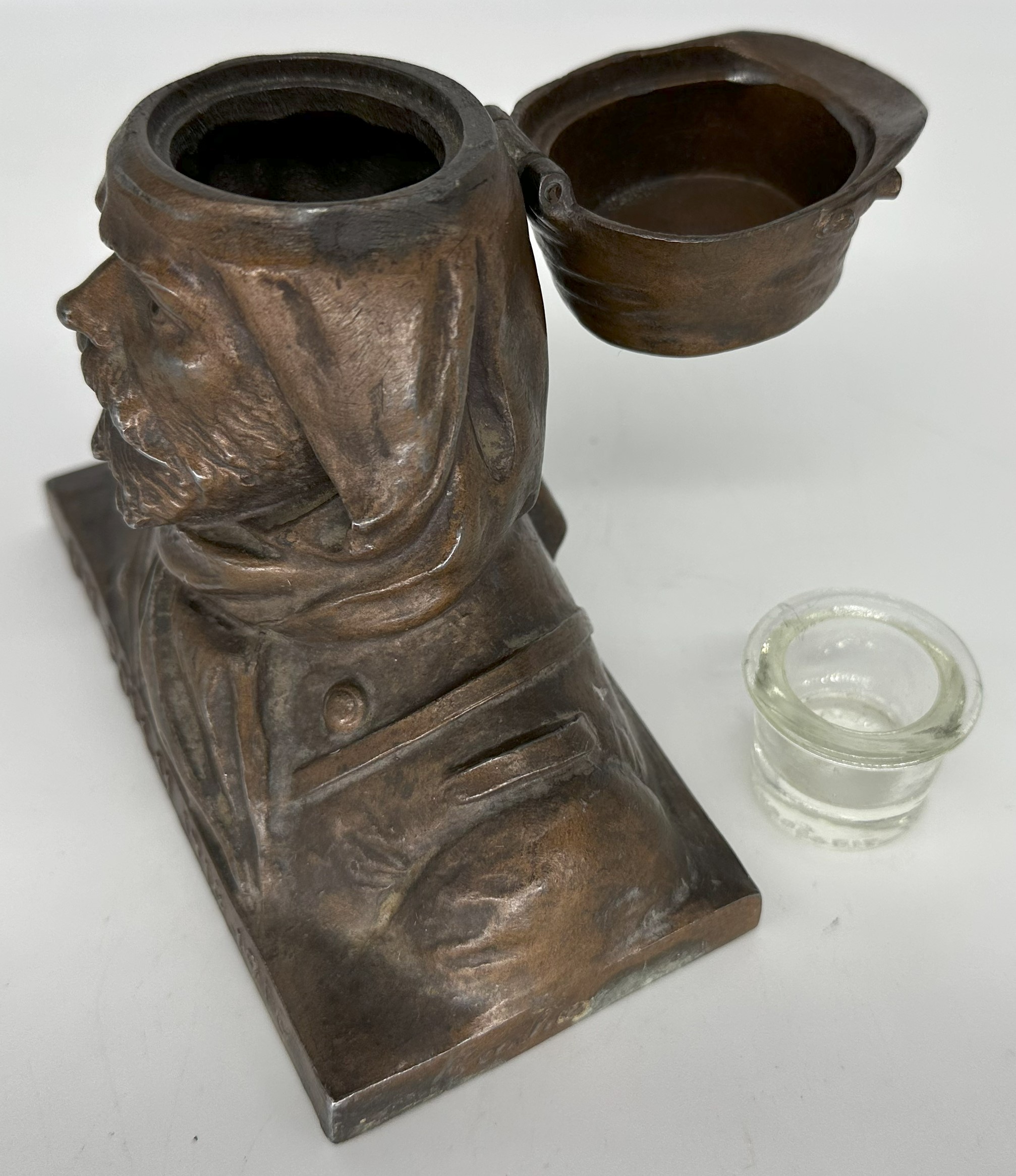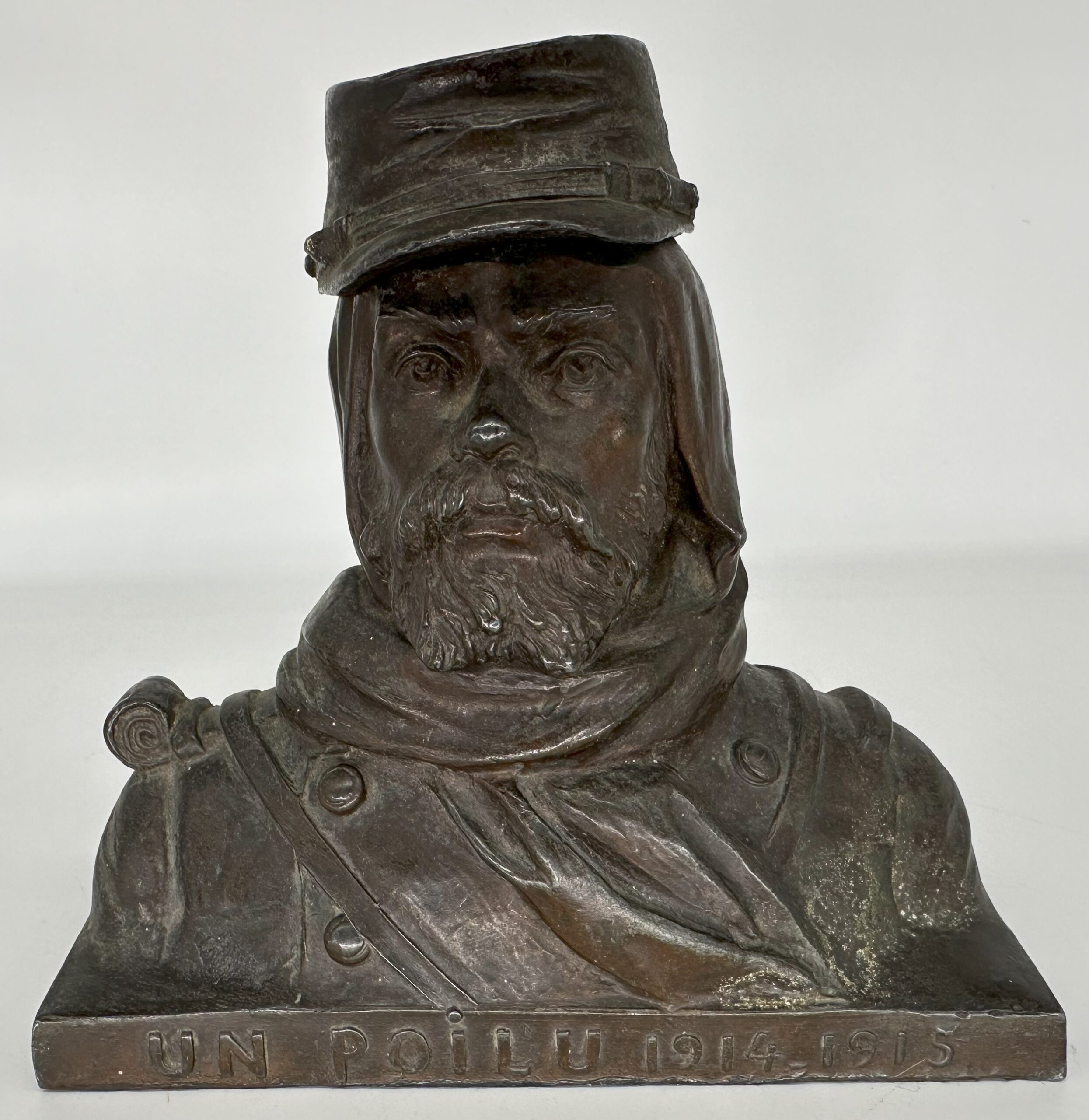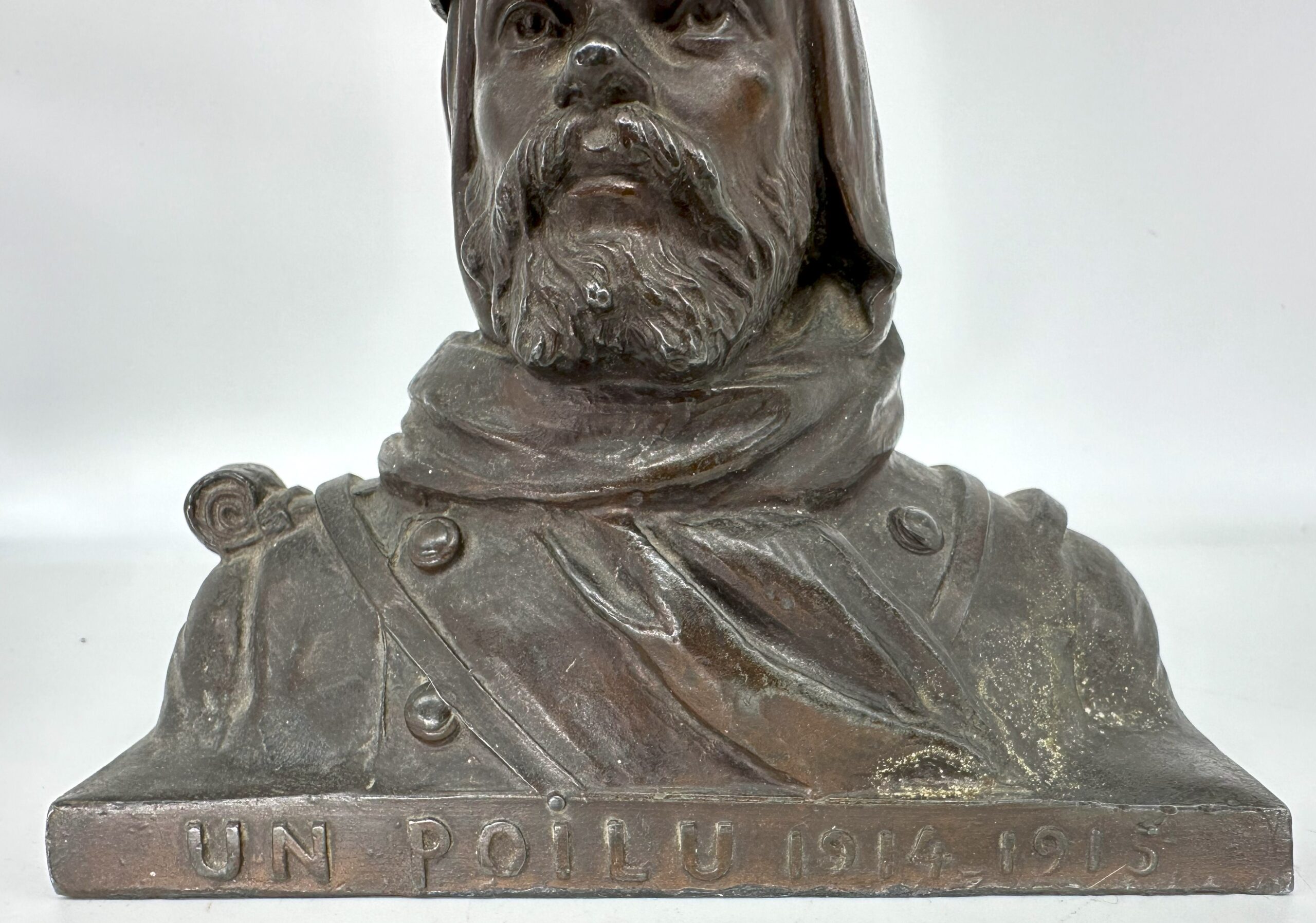
WWI French Soldier (“Poilu”)
| Categories | Figural - Persons |
| Type | Military |
| Material | Bronze finish |
| Markings | See Narrative |
| Manufacturer | Joseph Carlier |
| Origin | France |
| Date or Era | circa 1917 |
| Measuring | 5 ½” x 2 ⅝” x 5” high |
This inkwell is marked “Un Poilu 1914 – 1916”. The term “Poilu” translates to “hairy one” in French. It was a nickname commonly used for French army infantrymen, particularly during World War I. “Poilu” carries the sense of the infantryman’s typically rustic, agricultural background. Beards and bushy moustaches were often worn. The poilu was particularly known for his love of pinard, his ration of cheap wine. These brave soldiers endured the horrors of trench warfare on the Western Front. The nickname has historical roots dating back to Napoleonic times. The inkwell is a remembrance of the sacrifices made in WWI. (Note: there is an earlier version which has the dates “1914 – 1915”).
French Poilus, 1914-18 (historynet.com)
This bust shows the soldier wearing a jacket over which the straps of a satchel run, and a scarf that goes up under his hat. The hat is a military kepi and is hinged to open to the inkwell. The man has a scarred and thin face. He wears a long beard.
The work is by the French sculptor Joseph Carlier, his name impressed on the side.
There are examples of this inkwell in the Museum of Fine Arts of La Rochelle (France) and the Canadian War Museum.
Estimated value: $200
Content disclaimer. The information posted is the owner’s best knowledge and may not have been vetted by the SOIC. We welcome comments, corrections, and additions, working to make our website information comprehensive and accurate.
Join the Society of Inkwell Collectors (SOIC) – it’s free!
Founded in 1981 as a non-profit organization,
we are documenting inkwells (and accessories).
We’re here to help and inform!
